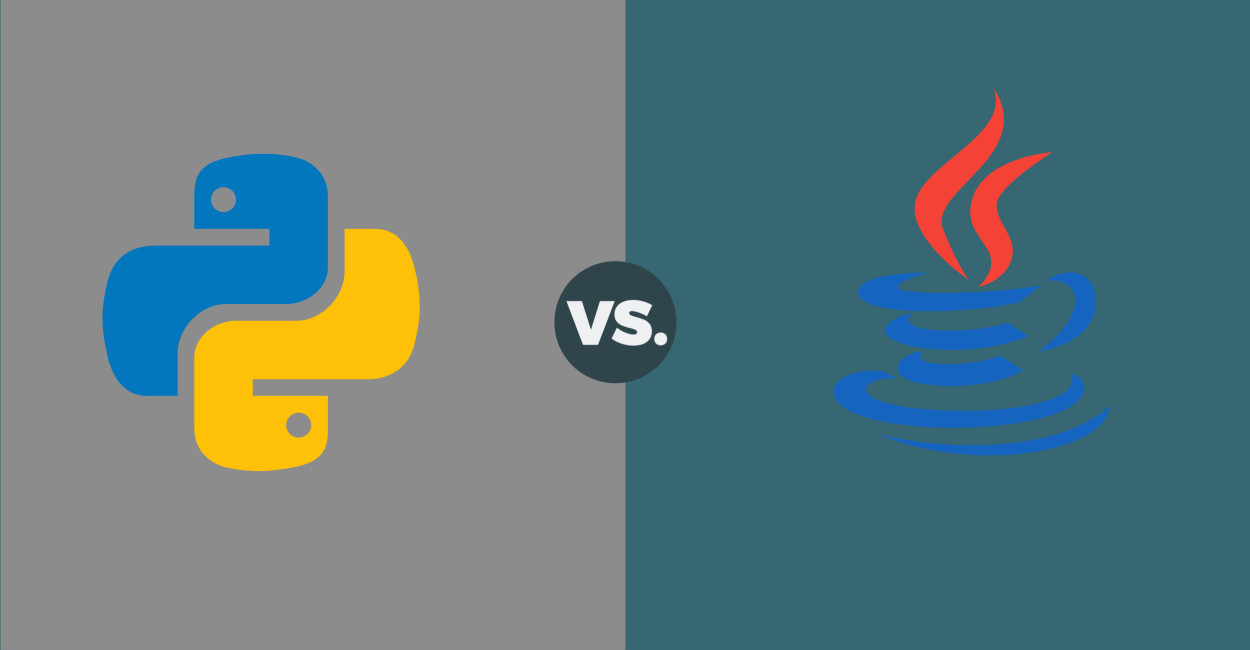It is not easy to declare the best among Java and Python. Both the programming languages have distinct perks to be widely used.
Developed 30 years back, Java is still on-demand for developers around the globe while Python owned the first position in TIOBE’s latest index for being one of the top choices in programming languages!
Clearly, there can be lots of debates between Java and Python. And differences come along with a debate. So let’s find out the key differences between Python and Java.
Python vs Java
1. Python vs. Java: Ease at coding
Python uses dynamic types while Java uses static. So, in spite of both being object-oriented programming languages, python is slightly easy to develop code.
Developers can write smaller codes in Python while Java takes more time to develop a code with static typing.
If you are a beginner in programming, Python will seem easier to understand as it is an interpreted language,
The ease at coding also uplifts the code readability. Developers can maintain a clean and easily understandable base in Python whereas Java demands extra time and effort to keep the code maintained and organized. The Python programming language is easier to code than the Java language.
2. Python vs. Java: Error Handling and Compilation
As we mentioned static and dynamic typing in Java and Python, it seems easier to code in dynamic language (or, Python). But at the same time we need to think about error handling.
Java compilation can detect the error easily and run the code smoothly and faster. Codes written in dynamic language are comparatively less verbose.
Python determines the datatype while compilation and it brings the speed comparison between Python and Java.
Java is better than Python in error handling and compilation as it uses static programming language instead of a dynamic language.
3. Python vs. Java: Speed and Performance
Java compilation is way faster than Python as it uses an interpreter. Java Virtual Machine or JVM speeds up the code compilation. Also, Java helps the software applications run smoothly.
Both Python and Java compile to bytecode, making the language cross-platform. Python is used sometimes to compile a python program into Java bytecode.
But, if we judge on a scale of speed and performance, Java has a significant faster performance than Python.
Java performs faster than Python in multiple cases.
4. Python vs. Java: Syntax
Syntax is one of the most important parts of coding in any programming language. Similar to human languages, different programming languages have a distinct set of rules (or, grammar); known as Syntax.
Python syntax is comparatively easy to remember and use as it is quite similar to the human language.
Java syntax is complex with strict error limitations if you miss a single semicolon or curly braces in the code.
The Python syntax is easier than the Java syntax.
5. Python vs. Java: Database and Framework
Java DataBase Connectivity or JDBC is one of the most popular platforms to connect with a database that is widely used by a large number of developers across the globe.
On the other hand, Python’s database is weaker than JDBC and it is rarely used.
For software and web application developers, it is really important to have decent reference frameworks.
Compared to Python, Java has more numbers of frameworks available. Spring, Hibernate are some of the most popular Java frameworks. DJango, Flask are some of the essential python frameworks.
Java framework and database are comparatively more effective and popular than Python frameworks.
6. Python vs. Java: Agility
If we consider dynamic use and agility, practically Python is popular for this key reason. Python is popular among developers for DevOps and agile space.
Java is a more consistent and static programming language than Python that enables the prevalence of IDEs.
7. Python vs. Java: Applications in Various Fields
- Web Development: Web development is one of the most challenging tasks for the developers, especially backend development where a developer needs to code the whole system from security to readability.
As mentioned earlier, there are many popular frameworks available for both Python and Java to develop a proper website backend.
DJango is one of the most popular Python frameworks for effective web development. This framework is equipped with a powerful ORM or Object Relational Mapping to deal with databases.
Among Java frameworks for backend development, Spring is one of the best frameworks that is used by many famous enterprises including Dell, Orange, GE, etc.
Huge community and massive ecosystem for Spring facilities enterprise level web development.
- Game Development: Game development need a seamless process that is massively provided by C/C# programming languages. Neither Java nor Python is the perfect language for game development.
If you want to experiment as a beginner, there are different frameworks like Maya, Panda3d, Pygame available to work with Python.
Python is generally used by developers as a scripting language as this is one of the most popular programming languages.
Java is also not an extremely powerful tool for game development but, with JMonkeyEngine (an open-source game development platform) you can develop some games and experiment with computer graphics from scratch.
- Machine Learning: Machine learning and AI open different perspectives in the field of application. As Python is an agile and fully-fledged programming language, it is better to experiment with AI & ML in Python.
Java is also a good option for Machine Learning as it is a strong and reliable platform for debug and use.
Conclusion
There are plenty of opportunities if you can learn these programming languages and develop your career. In the world of computer and technology, both Python and Java hold distinct importance.
This article might help you to get a better picture of the key differences between Java and Python that a programmer should definitely know.




